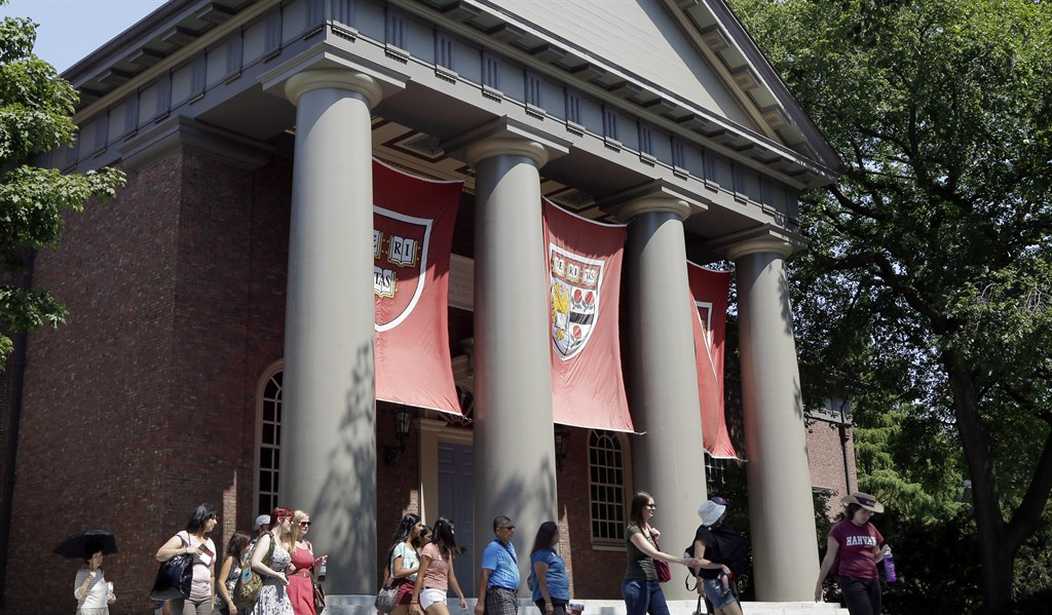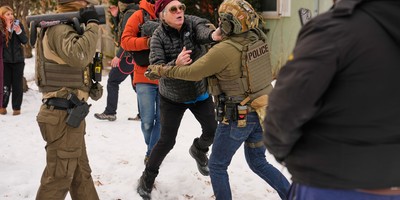Who would have thought, only a few years ago, that our basic First Amendment right of free speech would be under attack on college campuses (of all places!)? But those are now ordinary campus events.
Progressives want to shield college students from what are called "scary ideas." They are not referring to Halloween pranks or costumes, or to historic wartime episodes of bitter fighting; the new buzzwords are "trigger warnings," "outgrowths of fragility" or "sexual paranoia."
Professors talk about the need to overturn the "privilege theory." Anyone who can't claim to belong to an oppressed group must be unfairly advantaged by unearned "privilege."
A whole new vocabulary has come into collegians' lingo. Students claim they suffer from "microaggressions," a word defined as the use of a verbal expression or any customary social norm of behavior to which somebody might take offense or feel threatened.
Everyone is subject to having his ordinary conversation or acts construed as secretly or inadvertently using racism, sexism or heterosexism. Everyday slights or indignities, verbal or behavioral, are assumed to be giving offense.
Some students gripe about hostile classroom environments, which the left usually attributes to "white privilege" and other forms of institutionalized oppression. Students are even offended by professors correcting their papers and exams because corrections allegedly deride their intellectual capacity and harm their psycho-physiological health.
Another trendy phrase among college students is the claim that they need "safe spaces" where their feelings can't be hurt. The safe place at Brown University, for example, was equipped with cookies, coloring books, Play-Doh, calming music, pillows, a video of frolicking puppies, plus staff trained to deal with trauma.
Recommended
"Safe places" are designed to calm students who experience anxiety from being "bombarded" with upsetting opinions. For example, if a class discusses the "rape culture," the college should provide a "safe space" for students who find some comments "troubling" or even (the new buzzword) "triggering."
At Reed College in Portland, Oregon, freshman Jeremiah True was banned from participating in class discussion after he challenged the concept of "rape culture" and questioned the widely used statistic that 1 in 5 college women is sexually assaulted. The 19-year-old student was accused of "placing too much emphasis on men being unfairly charged with rape," which was "deeply upsetting" to other students and "retraumatized and triggered survivors."
Funny thing, I haven't heard of any safe places reserved for those who are offended by anti-American, anti-Christian or even anti-religion talk. Where is the safe place reserved for the University of California, Irvine, students who were upset when dozens of leftist professors signed a letter supporting banning the American flag on campus?
The professors' letter stated that "nationalism, including U.S. nationalism, often contributes to racism and xenophobia" and referred to the American flag as "paraphernalia of nationalism ... used to intimidate." Rather than banning the flag, the university could have designated a "safe place" for any students who feel "intimidated" by the mere sight of the American flag.
At Cornell University, an assistant dean of students said he would welcome a pro-ISIS group on campus, even if it wanted to conduct a training camp for students or ship care packages to the Middle East. But at California State University, Stanislaus, in Turlock, the Christian fraternity Chi Alpha and its Stanislaus Christian Fellowship were barred from campus for "discrimination" because their leadership positions were reserved for professing Christians.
And what about the students at Pine Bush High School in New York State where, during the regularly scheduled morning announcements, the speaker read the Pledge of Allegiance in Arabic? This event exploded into a raging controversy that divided the school into angry factions, even though the principal came on the loudspeaker to apologize.
National Review has blown the whistle on who really does enjoy "privilege" in America. This useful article shows that the most valuable "privilege" is not "white privilege" nor even "wealth privilege," but is the "marriage privilege," i.e., the advantage of growing up in a home with a mother and father who are married to each other.
Richard Reeves of the Brookings Institution also found that only 19 percent of the kids in the lowest economic quintile remain stuck at the bottom of the economic pile if they are born to parents who are married and stay married. This marriage privilege works for the middle class, too.
Harvard Professor of Economics Raj Chetty is another scholar who has noted the significance of the marriage privilege, but he added another dimension: the neighborhood where the kid lives. "Once we control for the fraction of single parents in an area, we find no correlation between racial shares and upward mobility."
These conclusions were confirmed by the late William Raspberry, the Pulitzer Prize-winning Washington Post columnist. He expressed little tolerance for those who blame black problems on poverty, crime or even racism when, he wrote, the chief cause is the failure of marriage and the absence of fathers.
























Join the conversation as a VIP Member